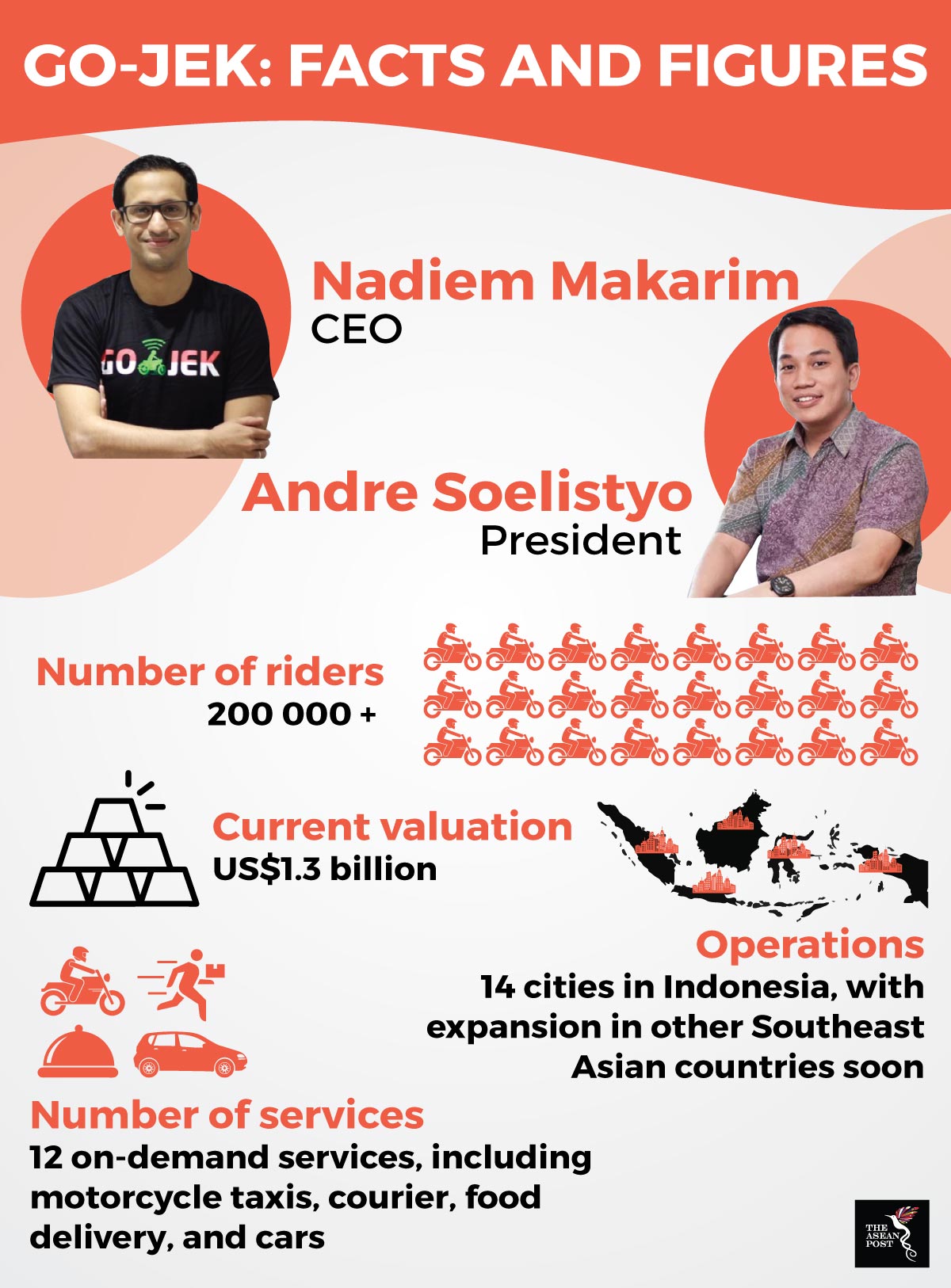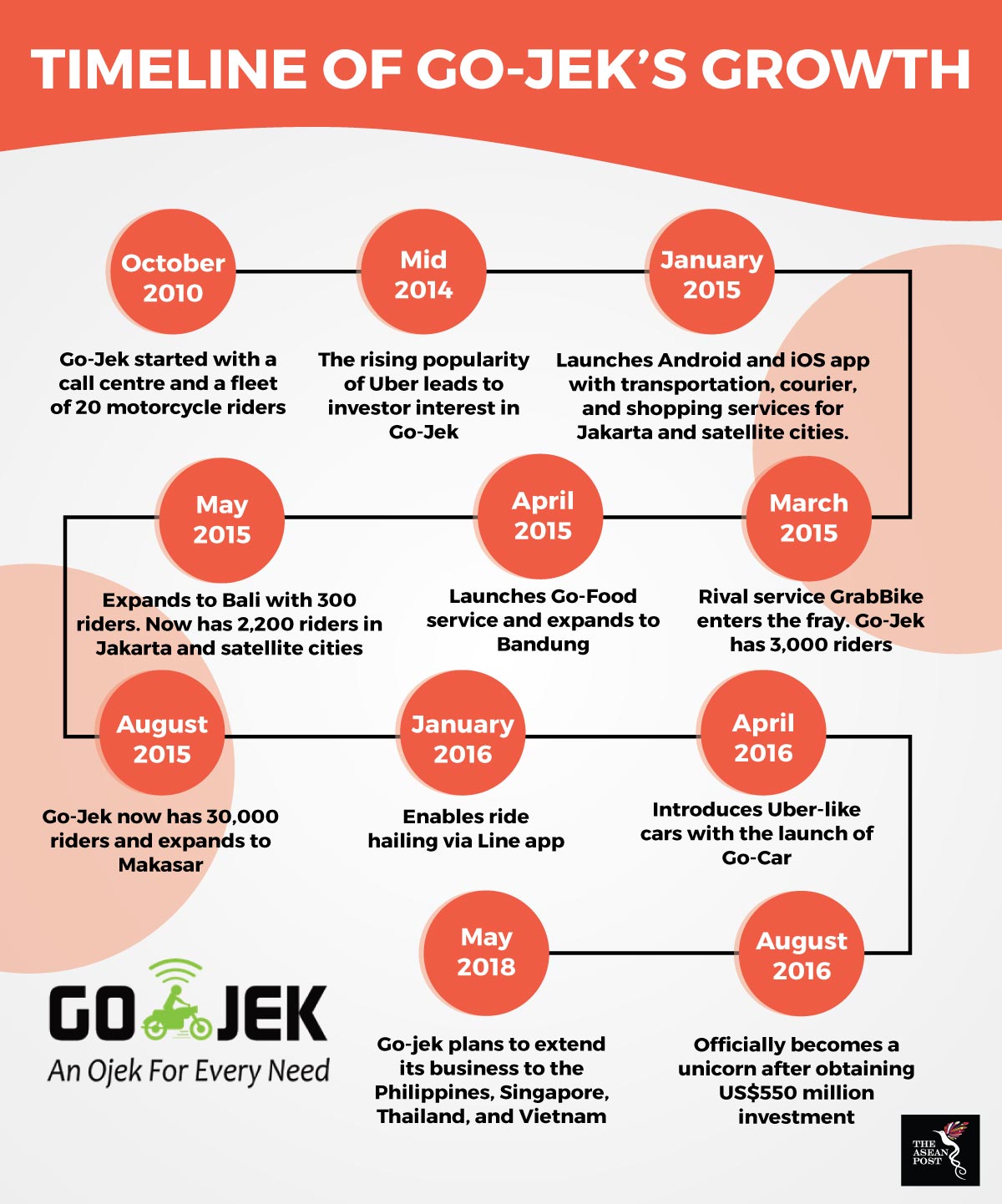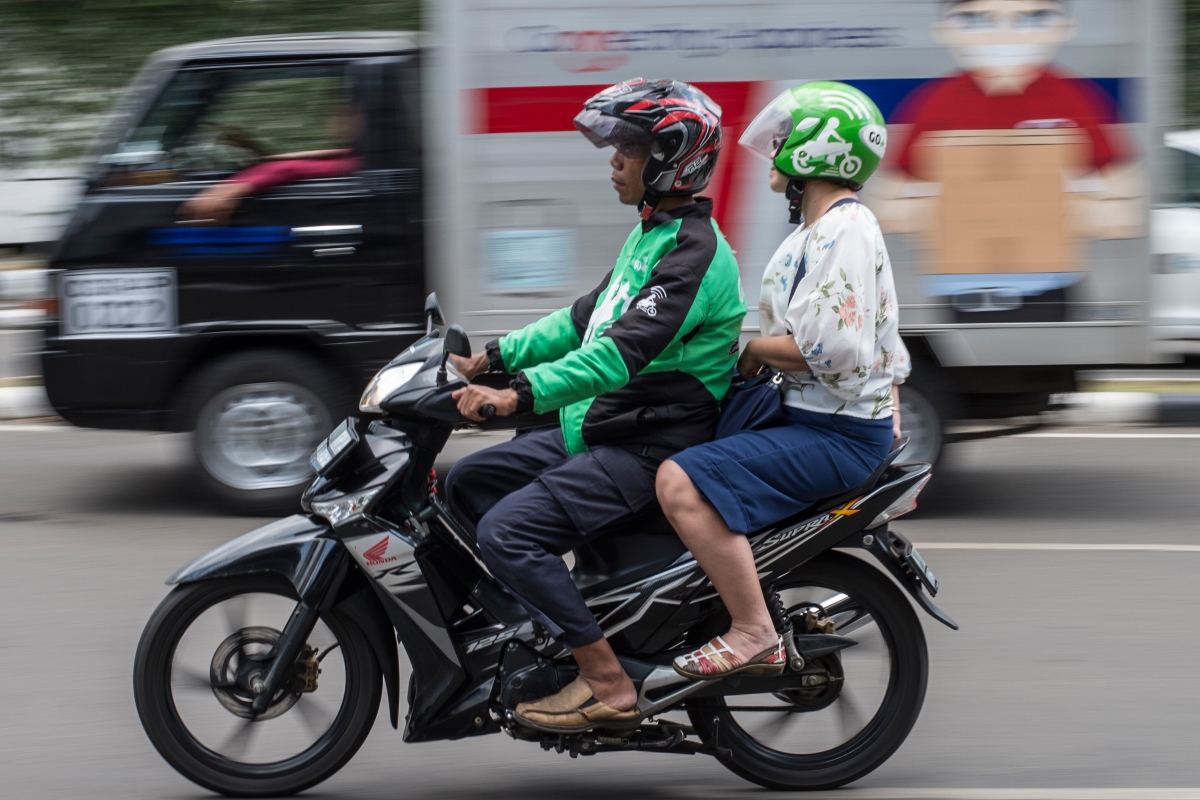Since its launch in 2010, Go-Jek has grown rapidly in Indonesia, a country that is home to more than 250 million inhabitants. Now, as the nation’s first and biggest unicorn looks beyond its shores, things are about to change. To further expand the brand and soar to greater heights, Go-Jek announced that it will penetrate the markets of the Philippines, Singapore, Thailand, and Vietnam.
The services provided across the region will be more than just ride-hailing, as there are plans for additional services to be implemented, including on-demand shopping that will be introduced over time. According to Go-Jek, it will invest US$500 million in its expansion plans, which have been rumoured for months.

Source: Various sources
Initially, Go-Jek offered bike taxi services but has gradually moved to taxis, private cars, mobile payments, food delivery, as well as services like massages on-demand. A breakthrough for Go-Jek was when it entered the fintech sector with the launch of its e-wallet; Go-Pay. This move was to facilitate cashless payments for all the services provided by the Andre Soelistyo-led company. Go-Jek’s reach is commendable as the company bought over three fintech startups to strengthen its presence in Indonesia’s digital payments sector. Supported by Singapore’s Temasek Holdings and Chinese tech behemoth Tencent, Go-Jek’s services are now used in 50 cities across the country.
In April, ComfortDelGro, a Singaporean taxi operator, looked to secure a potential partnership with Go-Jek when a deal with Uber failed to materialise. This move looks to ruffle the feathers of Grab, its main rival that also operates in Indonesia, the region’s largest market for ride-hailing services.

Source: Various sources
Potential outcomes
Go-Jek’s first step in its expansion plans is to establish itself in Singapore before growing its business in other ASEAN member countries. The tussle for ride-sharing dominance in the region is further exacerbated by the fact that Uber has ceased its operations with that slice of the pie gobbled by Grab (the former having a 27.5 percent stake in the latter). With its proposed foray into Singapore, Go-Jek looks to fill the void created in the market by Uber’s departure. In doing so, Indonesia’s pride and joy will provide much-needed competition to Grab.
“I think a lot of governments and regulators have been actively welcoming competition in each of their countries because that’s healthy and good for the consumer,” Go-Jek’s CEO Nadiem Makarim said in an interview.
In response to the possible threat of being overshadowed by a competitor, Grab has switched its gears and looks to move beyond ride-sharing services. It is now offering GrabFood, a food delivery service that will also be available in five other Southeast Asian countries within this year. For the launch of its GrabFood app, the company has signed up numerous merchants to its service platform, including McDonald’s and a local Singaporean favourite, Hock Lam Beef Noodles.
Some might argue that this idea was lifted from Go-Jek’s entrepreneurial masterclass of providing other services besides ride-sharing. Nevertheless, Makarim’s brainchild will have to ‘take in on the chin’ and see it as a compliment to Go-Jek’s marketing strategy. A possible challenge to Go-Jek in Singapore is that it will have to do away with its traditional motorcycle ride-hailing service in adherence to Singapore’s Land Transport Authority (LTA) regulations. As such, Go-Jek might be in the precarious position of having to change its business model. What works for the company in Indonesia might not garner the same success in Singapore. Go-Jek kept prices low on their home turf to grow their business and secure a dominant position within the masses. This approach may not be financially sustainable in Singapore.
The positives from Go-Jek’s planned expansion is that it provides customers with an alternative; an option to their ride-sharing experience. As Grab’s stranglehold on the market is challenged, healthy competition between the two can take place, with hope that it will lead to improved service for consumers in both, the short and long run.
Go-Jek will have to deal with the aforesaid concerns if the company wants to be a ride-sharing powerhouse in the region. Since Singapore’s market is very different to that of Indonesia’s, Go-Jek will have to try new measures and build rapport with Singaporeans before it can think about expanding to the Philippines, Thailand, and Vietnam. From the plans laid out, it seems that Go-Jek is on the right track for continued growth.
